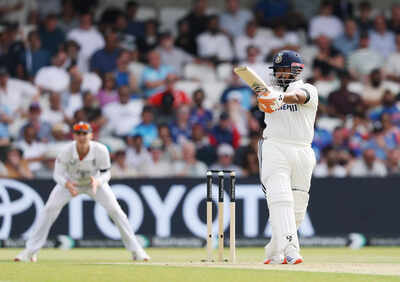Talking about one of the most disturbing periods of his life in cricket, former New Zealand batter Lou Vincent recalled how he got involved with the dark world of ‘fixing’ during his time in the Indian Cricket Leaguewhich no longer exists, during the late 2000s.
Battling depression at that time, Vincent said being part of a “gang” made him “feel better”.
“I didn’t have the mental package to be a professional sports player. So at 28 I was deeply in depression and then went to India, and was dragged, sucked into that fixing world. It was pretty easy to see how it happened,” Vincent said in an interview with the ‘The Telegraph’.
“I felt like I was part of a gang. It almost made me feel better, because I am thinking: ‘I am part of a match-fixing gang, I am with a group that’s going to have my back and nobody knows our little secret.’ I think that’s how most bike gangs work with young kids. Yeah, they sort of groom young kids into ‘we’ll look after you but go drive that car through the shop and smash it up’.”
ALSO WATCH
IND vs AUS: India batting has been a major cause of worry
He received 11 life bans from the England and Wales Cricket Board in 2014 for match-fixing activities. The sanctions were modified last year, permitting his participation in domestic cricket.
Vincent started his Test career with a century on debut against Australia but could play only 23 Tests, besides featuring in 108 ODIs for the Black Caps, after which his international career came to an early end at the age of 29 as he fought depression and got involved in match-fixing.
While it was difficult for Vincent to get out of the ‘gang’ running the fixing net, he found a way despite threats.
“When you’re in that world, it’s hard to get out. There’s always a very underlying threat of ‘we know you, we know your kids’. You know, there’s never a direct threat. But they make it very clear that they’re involved with some pretty heavy underground gangs.
“And, ‘you owe us, and you always will owe us’. Even if you’ve completed the fixing, they own you. It’s hard to get out, and the only way to get out was literally the way I did (confess),” he said.
He said admitting the wrongs he committed helped him heal.
“Coming clean and approaching the players’ association and telling them what was happening, ‘where do we go from here?’, was the start of turning it around. The ECB was great to deal with.
“It’s taken a good decade but you can’t rush healing. It is still a daily check sometimes. But those moments of going down (feeling depressed) are very short now instead of it being hours or days or weeks,” he said.
IND vs AUS: Rohit Sharma has had a terrible time with the bat in whites
Talking about his past, Vincent shared how his early life experiences influenced his personality and sporting career.
After experiencing a troubled childhood in a broken home, Vincent sought solace and found it within the corrupt practices of cricket. At present, he contributes to anti-corruption educational programmes organised by the New Zealand cricketers’ association.
“I literally raised myself from the age of 12, so I was always quite malleable to people around me. Because I wanted to be loved, you’re easily led astray,” he conceded.
“And, you know, that contributed massively towards my professional career of just wanting to be liked, wanting to be loved, and sort of sharing how I was feeling on tour.
“If I was a little bit homesick or not scoring enough runs, I would tell the coach, the captain and then all of a sudden you get dropped because they think he’s not going to give 100 per cent for New Zealand tomorrow, because he’s a little bit lonely,” he said.







